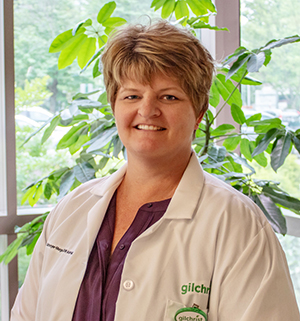National Health Care Decisions Day: Make Your Wishes Known

National Health Care Decisions Day is April 16, 2021. It’s a day to inspire, educate and empower individuals and health care providers about the importance of advance care planning.
It is vitally important to talk with those you love about your healthcare goals and wishes—not only at the end of life but throughout your lifetime. Communicating your wishes in advance will help your family make sure your care choices are honored.
What Is Advance Care Planning?
Advance care planning involves conversations with those you love. It entails defining the types of care you do and do not want, based upon your personal preferences and values. Documenting your choices will provide guidance for those you love to confidently make decisions for you when you’re unable to decide for yourself.
How to Get Started
Start talking. The easiest way to begin is to just start talking. Talk to your family, your friends, and your health care provider about what you want. Self-reflect on your values and what brings you joy and quality of life. While talking about death is not a priority when we feel well, it is probably one of the most important conversations worth having. It is not often that we are asked what we want, but it is OK to think about yourself and what you want when talking about the end of life or death. In the end, and when it is most important, your loved ones will thank you for it.
Get informed. It is important to understand your current health state. We may all feel good today—however, we never know when our day will come or when we will experience an unforeseen health complication. It is OK to schedule an appointment with your health care provider to ask questions about your health. Ask them to explain what your illnesses mean and how they will potentially change over time.
Understanding your health concerns or medical problems now can help you plan for their future impact on your health. I cannot stress enough the importance of thinking about the ‘what ifs’ or the ‘why nots’ now so your loved ones do not have to wonder later on.
Making the decision. These decisions are probably some of the hardest decisions you will ever have to make. But don’t ignore them. Medicine has had many advances over the past decade, and it is essential to know your care options and how they could affect your health. For example, what types of life-sustaining treatments are available? Would those treatments make sense for you, given your values? Ask questions and seek out the answers. What might be right for your sister or brother, aunt or uncle, may not be the right decision for you. This is your life, your care, and your decision of how it will all play out.
Write it down. Having conversations with the people you love is vital. However, without ‘putting it in writing,’ your decisions are just thoughts and words. Completing a written advance directive, which outlines your choices and decisions, makes your care at the end of life much more accepting for those you love. An advance directive softens the burden that loved ones often feel when their family member is dying or in crisis. It is one of the greatest gifts that you could ever give your loved ones.
Share. Once you have thought about and discussed your medical care decisions and written them down in a legal document, it is essential to share that information. Share your document with those you love and your health care provider.
Take the first step today. You can find resources to help you get started on making your health care decisions at Gilchrist’s Advance Care Planning page at gilchristcares.org/advance-care-planning.
To support Gilchrist’s work, visit gilchristcares.org/give.


